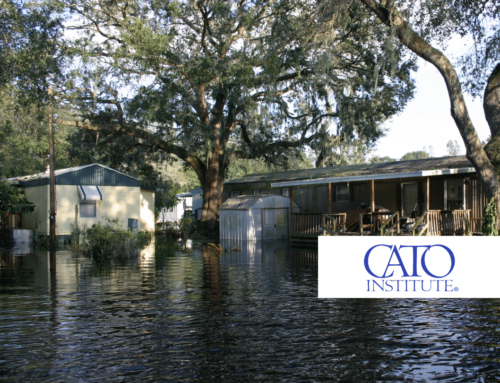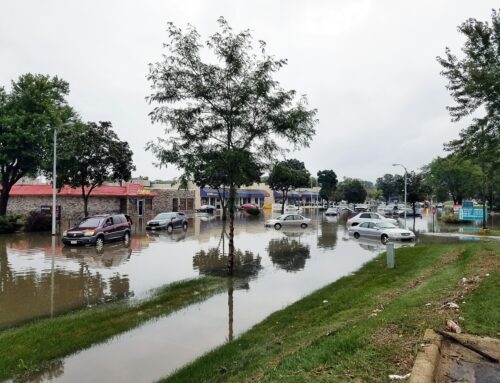Dear Senator:
For many years, our organizations have examined the standard operating practices of the Corps of Engineers and working to stop wasteful water projects. Beyond our criticisms of individual Corps projects, the incredible human and fiscal costs of Hurricane Katrina and other storms last year highlighted the critical need to modernize the nation’s approach to water resources. Unfortunately, the Water Resources Development Act of 2005 (S. 728), which passed committee last spring, contains more than $10 billion in new projects and does not adequately include necessary reforms to the system. The amendments offered by Senator McCain (R-AZ) and Senator Feingold (D-WI) and others would: 1) create a system to help prioritize amongst our multitude of water resources needs to ensure the nation’s most important projects are adequately funded; and 2) implement a system of independent peer review for costly, controversial, or critical projects. While similarly named, Senator Inhofe (R-OK) and Bond’s (R-MO) amendments simply codify the status quo and ignore the country’s very real water resource and fiscal challenges. Votes on these amendments will likely be included in our end-of-the-year scorecards.
The impact of Hurricane Katrina taught us many things, including:
The Corps is not infallible and the country needs independent review of costly, controversial, or critical projects. Independent engineering panels have found that the major levee failures in New Orleans occurred because of faulty design, construction, or maintenance – not overtopping. Several independent analyses by the U.S. Army Inspector General, the National Academy of Sciences, and the Government Accountability Office have found serious flaws in Corps analysis and methodology. The Feingold-McCain-Carper-Lieberman amendment will establish a truly independent system to conduct peer review of costly, controversial, or critical Corps projects. The timing of the review is flexible, but the duration is strictly limited so as not delay the process. Reviewers will be able to consider all the data, facts, and models used – as well as the ultimate conclusion. Conversely, the Inhofe-Bond review proposal will be controlled by the Corps, enables the Secretary of the Army to ignore project complaints from the Governor of a directly-affected state, and specifically excludes panels from reviewing conclusions or previously reviewed models. The essential impact of this review format is that that even if the panel finds the supporting data is wrong, it cannot reach a different conclusion on the overall review. Taxpayers demand that a dollar’s worth of spending result in well more than a dollar’s worth of project benefits. Instead of wasting limited project funding on boondoggles, or worse, projects that are not designed soundly, the Corps should be meeting the nation’s water resource needs in a cost-effective manner, and truly independent peer review can help accomplish that.
Tight budgets require prioritization of limited Corps funding. The Corps receives roughly $2 billion in annual construction funding to tackle a $58 billion backlog of authorized water projects. S. 728 would pile at least an additional $10 billion onto this backlog. There is no true transparent prioritization process outside the current black box budgeting. The McCain-Feingold-Lieberman amendment will tap a committee already created in S. 728 to review likely Corps projects (those under construction or authorized in last 10 years) against several common sense, transparent criteria, and group them by project category (navigation, flood and storm damage reduction, and environmental restoration) into broad roughly equal-sized tiers. This advisory report would then be sent to Congress and provided to the public. The Inhofe-Bond amendment is little more than smoke and mirrors. It asks the Corps to review the entire $58 billion project backlog and creates some vaguely worded criteria for an ill-defined “relative rating system.” Much of the criteria are reverse-engineered to favor certain projects and the amendment is designed to look more robust by striking several pages of the underlying bill and replacing it with the exact same text. Enough is enough, and we need a systematic method for ensuring the most vital projects move to the front of the line so limited taxpayer funds are spent more prudently.
The stakes are high. Since the 1920s, the Corps of Engineers has spent more than $122 billion on flood-control projects (adjusted for inflation), but average annual flood-control damages have tripled in real terms – even before Katrina. The answer is clearly not to spend more but to spend smarter, and an independent prioritization system will help us do just that.
Hurricane Katrina took the lives of more than one thousand people, disrupted the lives of more than two million people, and destroyed tens of thousands of buildings. The cost to federal taxpayers alone will exceed $100 billion. We strongly urge you to support the taxpayer-oriented McCain-Feingold amendments to incorporate strong modernization principles of independent peer review and project prioritization and to reject attempts to undercut reform and maintain the status quo that served the nation so poorly in the aftermath of Hurricane Katrina.
For more information, please contact Steve Ellis at Taxpayers for Common Sense Action, 202-546-8500 ext. 126 or steve@taxpayer.net; Kristina Rasmussen at National Taxpayers Union, 703-683-5700 or krasmussen@ntu.org; David Williams, Council for Citizens Against Government Waste, 202-467-5300 or dwilliams@cagw.org.
Sincerely,
Jill Lancelot
President/Co-Founder
Taxpayers for Common Sense Action
John Berthoud
President
National Taxpayers Union
Thomas Schatz
President
Council for Citizens Against Government Waste











Get Social